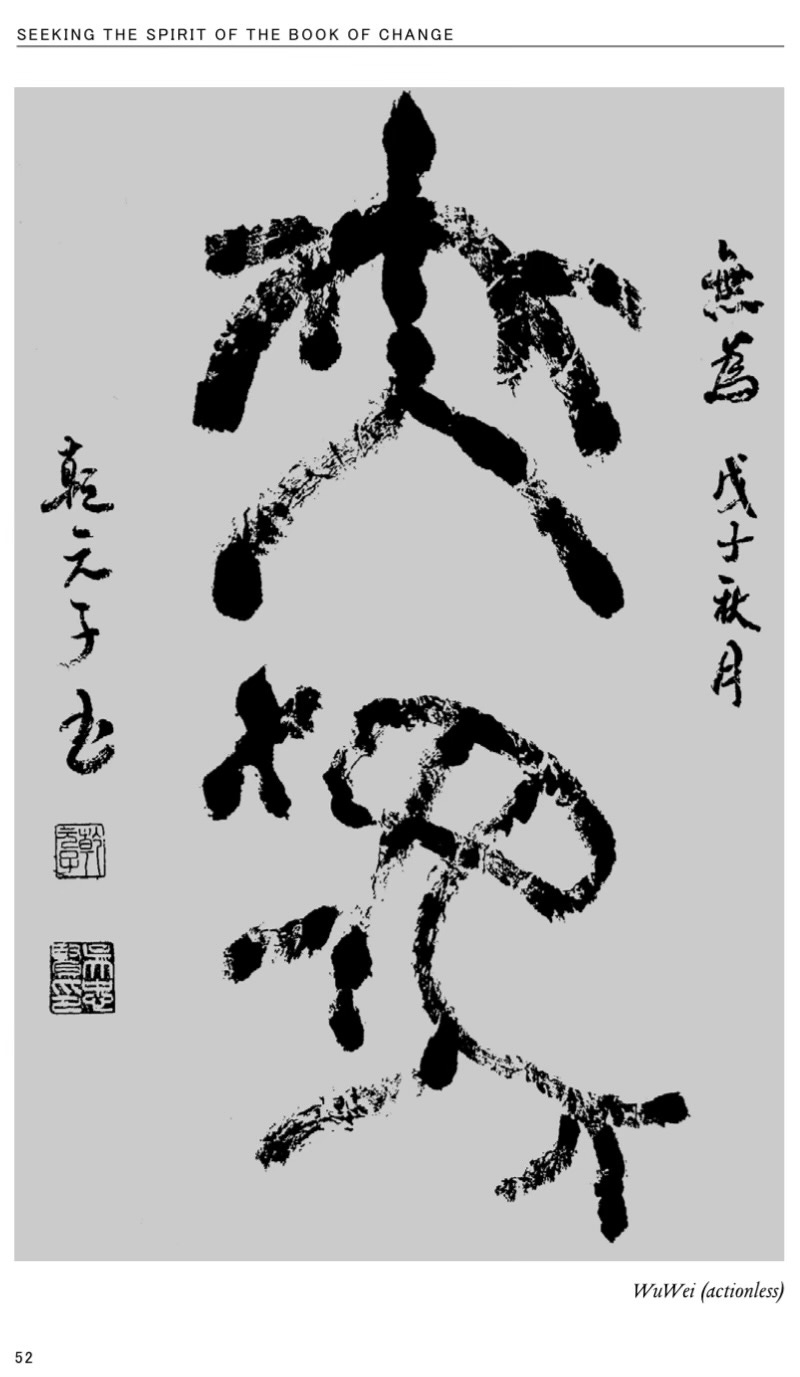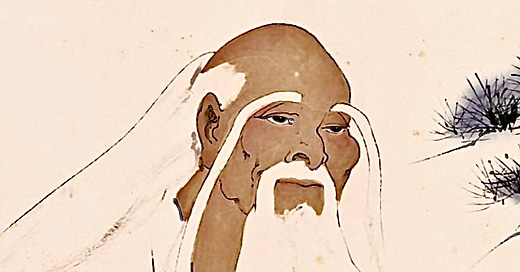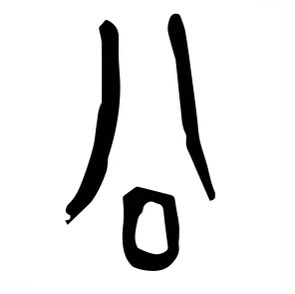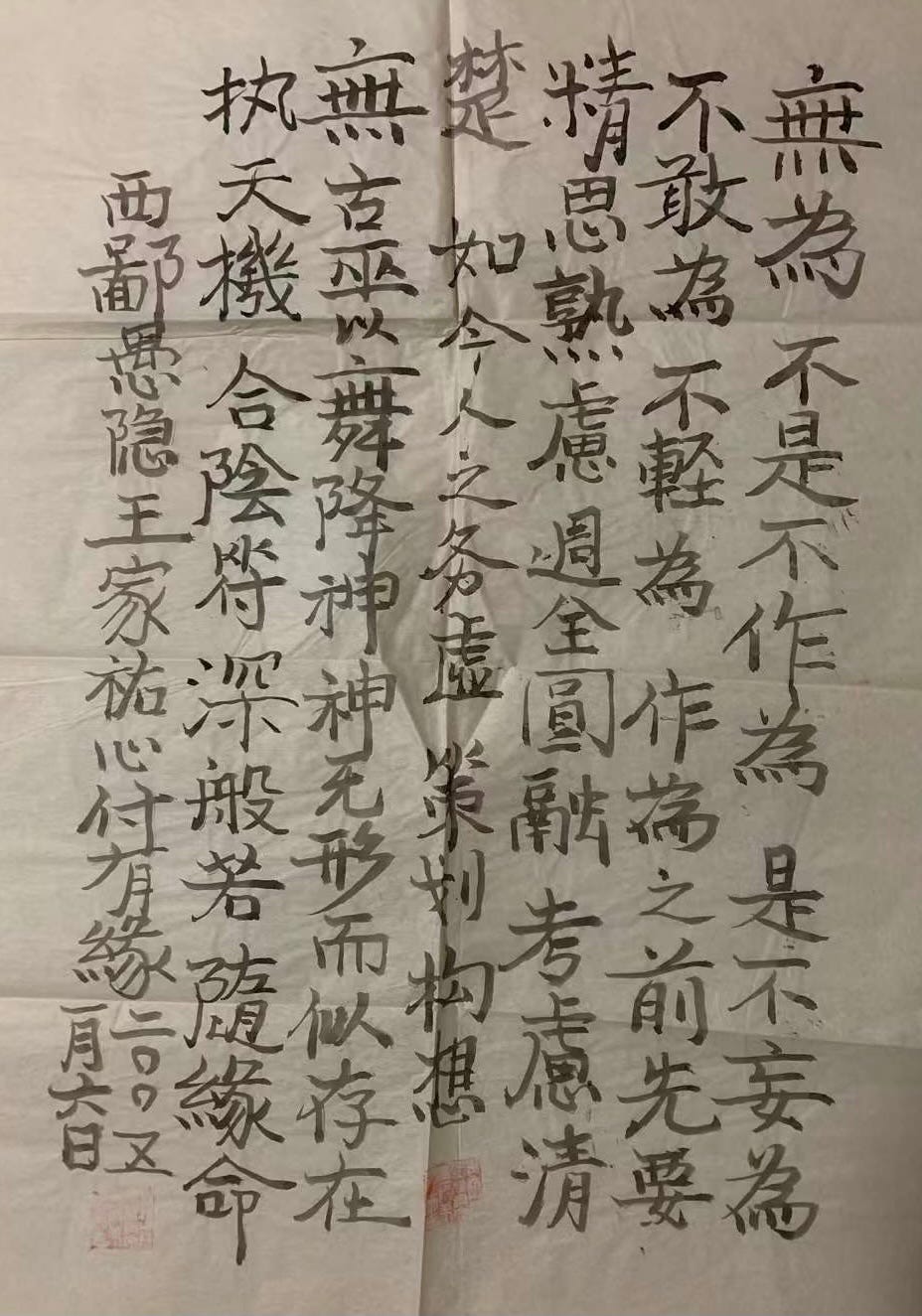Hexagram ䷅ 訟 Song - part 2
— Competing or Enjoying?
TianYuShuiWeiXing Song JunZiYiZuoShiMouShi
天與水違行 訟 君子以作事謀始
Planets and the rivers are running in their own directions, which is the natural image of hexagram Song. Learning from this, the enlightened one focuses on one’s own cultivation practices and chooses the method according to one’s own situation.
— DaXiang 大象
Song Hexagram Part 1 Review
Above is my personal interpretation, from my perspective of internal cultivation, to hexagram Song’s DaXiang sentence, that I wrote about in detail in my article, ䷅ 訟Song Hexagram - Part 1.
The Chinese character Song 訟, the name of hexagram ䷅, unusually means lawsuit, litigate, argue, accuse, or dispute. However, it also carries the meaning of eulogize, praise, or chanting. It seems we have discovered another seemingly paradoxical Chinese word containing conflicting meanings: accuse and praise! As always, I look to the structure of the Chinese character to understand why this is.
Song 訟 is made with the left radical Yan 言 for speak, talk, or language and right, radical Gong 公 for justice, fair, or equality. It is easy to see that Song is about using language to seek justice, to praise a fair situation, or to pray for equality.
In chapter 81 of the DaoDeJing 道德經, LaoZi 老子 provides us with a similar cultivation principle:
ShengRenZhiDao WeiErBuZheng
聖人之道 為而不爭
The way of enlightenment is to take the action without arguing or competing with others.
I would like to share some deeper thoughts on what Yijing and DaoDeJing wisdom can elucidate for us regarding the Song Hexagram before getting into my next writing on the last hexagram in this Li 離 Palace series, TongRen同人 Hexagram.
GongPingJingZheng 公平競爭 — Fair Competition
It was an ordinary Saturday morning, and as usual, I was preparing our family favorite breakfast, crispy oyster mushrooms with bacon, green kale and rice noodles. As you can extrapolate from the many ingredients of this dish, it takes a while for me to get the food ready. In the meantime, my wife and daughter decided to play a favorite board game on the kitchen table while they waited.
As soon as the game started, my 9 year old daughter started questioning the fairness of the rules of this game, which I should note, it one that we play often. If she is in a certain mood, she experiences the rules as fair when she is winning and unfair when she is not. After prolonged and increasingly intense protestations of the rules, I finally heard my wife, reaching the edges of her patience, respond, “We play games to have fun. I am tired of discussing every rule of this game. Can we please now enjoy playing the game?” Overhearing this I had a new realization about the Song Hexagram that I’d like to share with you.
Through almost six decades of life experience, I know that a fun game can easily turn into a stressful competition. It is the same in life - we can easily turn a joyful affair into an unpleasant situation when we have a strong competitive attitude.
I learned the Chinese phrase GongPingJingZheng 公平競爭 (the subtitle for this section) when I was young. It means fair competition, or competing without cheating. This phrase is widely used in sports games, and any kind of contest or race. The original purpose of the phrase is to remind us to not focus on the result of the contest, but rather do our best and enjoy the event. I think that this phrase is a perfect interpretation for the wisdom within the Song Hexagram. Just now as I write, I had a new inspiration for the meaning of Song come to me.
Please take look the structure of the Song 訟 again. As I mentioned, it is made with the left radical Yan 言 and right radical Gong 公. One of the ancient definitions for Yan is the voice of the heart. In addition to the meanings of justice, fair, or equality that I mentioned earlier, it is also a Chinese word that we use daily for old man and grandpa. In Daoist tradition, it also means a wise person or an immortal.
To me, the ancient oracle written character Gong looks like two long eyebrows over a mouth. In Chinese traditions, we often portray a wise man or an old immortal with very long eyebrows.
For this reason, a new layer of my understanding for the meaning of hexagram Song includes speaking from our heart in order to live out our inner wisdom, which is similar to the famous Daoist cultivation and life principle — WuWei 無為, the Action-less.
WeiErBuZheng 為而不爭 — Acting without Arguing/Competing
Many of us are familiar with the Daoist phrase WuWei. Wu means no, not, nothing, or nihility. Wei means act, do, achieve, or action. We commonly translate WuWei as Action-less.

In fact, WuWei does not mean taking no action or doing nothing, rather, it means taking careful action or planning well before taking an action. The wisdom of WuWei is exactly same as the wisdom of Song Hexagram symbolism that I discussed in part 1 of this article — ZuoShiMouShi 作事謀始, focusing on one’s own business to make a new plan.
In the Chapter 2 of DaoDeJing, LaoZi told us ShengRenWeiWuWeiZhiShi 聖人為無為之事, the enlightened beings conduct WuWei affairs. In chapter 81, the closing chapter, he concludes with how enlightened beings conduct WuWei actions: WeiErBuZheng 為而不爭 — acting without arguing/competing.
I am grateful to all my masters who have guided me with the wisdom of the Song Hexagram and WuWei throughout my various traditional arts trainings and how to apply this wisdom to my daily life. When I practice martial arts, music, calligraphy, it is for enjoying the moment as it is and for personal development, and never for my ego or to compete with others. When I am able to apply this principle during a conflict, I find that it is easy avoid an argument as long as I remember to enjoy, not to argue. 😊
In conclusion, I would like to share some guidance on WuWei from my master, Grandmaster Wang JiaYou 王家𧙗 (1926-2009), QingCheng 青城 lineage master and archaeologist:
WuWei does not mean to do nothing, it means you don’t take any presumptuous actions, don’t do anything without preparing well or planning. In order to truly understand WuWei, you should practice the ancient Wu 巫 (Chinese shaman) inner dancing technique to awaken your Shen 神 (spirit) and inner wisdom. You have inner wisdom to prepare yourself before taking an action.

I hope you enjoyed my article! Stay tuned for my writing on the last hexagram in this series, TongRen 同人.







Thank you so much for sharing, I am experiencing official divorce right now, plan through and act carefully is what I need